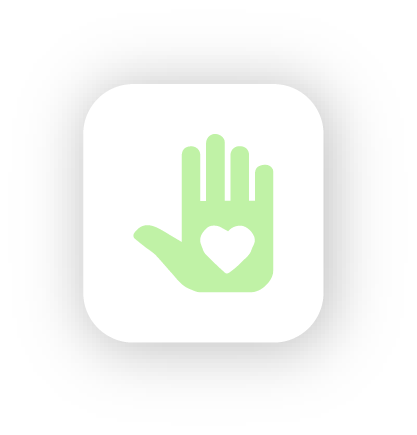
RAIL Women’s Recovery House
The sober living housing program at Recovery Advocates in Livingston, Inc. provides a structured environment where individuals newly in recovery from addiction learn essential skills for maintaining sobriety.
A Path To Sober Living
The sober living housing program at Recovery Advocates in Livingston, Inc. offers a structured environment where individuals newly in recovery from addiction develop essential sober living skills.
This program is guided by the principles and standards of the National Association of Recovery Residences Level 3. Level 3 structured housing provides supervised living with qualified staff who connect residents to community treatment and support services.
Recovery Advocates in Livingston oversees staff, procedures, standards compliance, house rules, peer-facilitated groups, drug screening, and emphasizes life skills development. A case manager assists residents in connecting to clinical services, community-based recovery groups, and dental and physical care as needed.

Recovery Groups &
Management
Referrals and support for
recovery training
Recreational &
Social Support
Enjoyment Services &
Job Training
Comprehensive Support For Every Stage Of Recovery
At RAIL, we offer a wide range of services tailored to support individuals in their recovery journey.
Case Management &
Resource Coordination
Family Support &
Life Skills
Spiritual Support &
Sober Living Skills

Comprehensive Support For Every Stage Of Recovery
At RAIL, we offer a wide range of services tailored to support individuals in their recovery journey.
Resident Requirements for Sober Living House
Must be 18 years or older
Must be medically and psychologically cleared
Must have a strong desire to change life circumstances
Must abstain from alcohol and drug use
Must commit to a continuing plan of care
For opiate users, consideration of medication-assisted treatment is encouraged
Must agree to random drug and alcohol screenings
Must work or volunteer at least twenty hours per week, with no exceptions
Must abstain from new relationships and sexual activity, unless in pre-existing committed relationship
Must attend all house meetings
Must adhere to curfew hours
Must participate in all house group activities and community meetings
Items To Bring
Bed and bath linens
Toiletries
Insurance card
Request for additional drug screens, if applicable
Prescription for any medications
Discharge plan from referring organization, if applicable
Initial groceries
Professional attire for interviews
Personal items to customize your space
Cell phones (encouraged for communication and accountability)
Cars permitted, subject to individual clearance
RAIL's Women's Recovery House
Frequently Asked Questions
-
Yes, residents are required to maintain employment or attend school. If a resident becomes unemployed or is not enrolled in school and is physically capable of working (not injured or ill), they must actively seek employment from 8 a.m. - 5 p.m.
-
Fees are $115.50 per week.
-
Yes, all residents are expected to complete assigned house chores, which are designed to help develop independent living skills. The house manager assigns and monitors these chores.
-
Visitors are not allowed on the premises without prior approval from the house manager. Guests may only be in common areas and are not permitted beyond curfew. Visitation hours are between 9 a.m. and 10 p.m.
-
Yes. New residents have a curfew of 6 p.m. every night for the first two weeks. For all others, curfew is 10 p.m. Sunday through Thursday and 11 p.m. on Friday and Saturday. Returning to the house after curfew may result in dismissal.
-
Meal preparation is the resident’s responsibility, and food must be prepared and eaten only in designated areas.
-
Yes, all residents are subject to random drug and alcohol screenings to ensure the safety and integrity of the facility. Testing is conducted upon intake and at least once per month thereafter.
-
Yes, all residents must attend a weekly community education group and a house meeting. Topics include relapse prevention, behavior modification, spirituality, occupational and financial counseling, impulse control, self-esteem, core beliefs, and other recovery-focused subjects. A case manager will also assist residents in connecting to additional community services, including medical and dental care.
-
Residents may request overnight passes, with policies and procedures detailed in the resident handbook.
-
A minimum commitment of four months is encouraged. Residents may remain as long as they are working toward life goals and there is mutual benefit for both the resident and the program, for up to a year.
-
Parking is limited. Residents wishing to bring a vehicle must provide a copy of their valid driver’s license and vehicle registration to Recovery Advocates in Livingston.
Recipient Rights
Recipients of substance abuse services have rights protected by the state and federal laws and promulgated rules.
For information, contact Anne King-Hudson at 810-599-5346, or Recipient Rights Coordinator, Michigan Department of Community Health, Mental Health and Substance Abuse Services, Bureau of Substances Abuse, 320 South Walnut St., 5th Floor, Lansing, MI 48913.

























